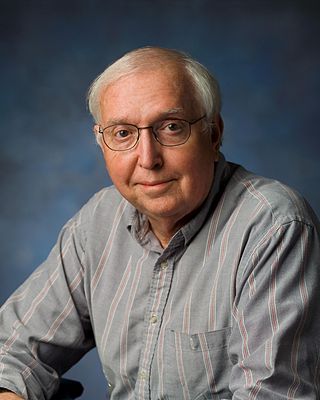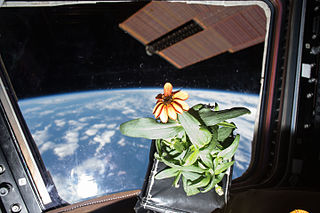
The potato is a starchy root vegetable native to the Americas that is consumed as a staple food in many parts of the world. Potatoes are tubers of the plant Solanum tuberosum, a perennial in the nightshade family Solanaceae.

The sweet potato is a dicotyledonous plant that belongs to the bindweed or morning glory family, Convolvulaceae. Its large, starchy, sweet-tasting tuberous roots are used as a root vegetable. The young shoots and leaves are sometimes eaten as greens. Cultivars of the sweet potato have been bred to bear tubers with flesh and skin of various colors. Sweet potato is only distantly related to the common potato, both being in the order Solanales. Although darker sweet potatoes are often referred to as "yams" in parts of North America, the species is even more distant from the true yams, which are monocots in the order Dioscoreales.

Oxalis tuberosa is a perennial herbaceous plant that overwinters as underground stem tubers. These tubers are known as uqa in Quechua, oca in Spanish, yams in New Zealand and several other alternative names. The plant was brought into cultivation in the central and southern Andes for its tubers, which are used as a root vegetable. The plant is not known in the wild, but populations of wild Oxalis species that bear smaller tubers are known from four areas of the central Andean region. Oca was introduced to Europe in 1830 as a competitor to the potato, and to New Zealand as early as 1860.

Ullucus is a genus of flowering plants in the family Basellaceae, with one species, Ullucus tuberosus, a plant grown primarily as a root vegetable, secondarily as a leaf vegetable. The name ulluco is derived from the Quechua word ulluku, but depending on the region, it has many different names. These include illaco, melloco, chungua or ruba, olluco or papalisa, or ulluma.

CGIAR is a global partnership that unites international organizations engaged in research about food security. CGIAR research aims to reduce rural poverty, increase food security, improve human health and nutrition, and sustainable management of natural resources.

Kamuli District is a district in the Eastern Region of Uganda. The town of Kamuli is the site of the district headquarters.
Florence Muringi Wambugu is a Kenyan plant pathologist and virologist. She is known for her advocacy of using biotechnology to increase food production in Africa.

Astrobotany is an applied sub-discipline of botany that is the study of plants in space environments. It is a branch of astrobiology and botany.

The idea of sending humans to Mars has been the subject of aerospace engineering and scientific studies since the late 1940s as part of the broader exploration of Mars. Long-term proposals have included sending settlers and terraforming the planet. Currently, only robotic landers and rovers have been on Mars. The farthest humans have been beyond Earth is the Moon, under the U.S. National Aeronautics and Space Administration (NASA) Apollo program which ended in 1972.

David Stewart McKay was chief scientist for astrobiology at the Johnson Space Center. During the Apollo program, McKay provided geology training to the first men to walk on the Moon in the late 1960s. McKay was the first author of a scientific paper postulating past life on Mars on the basis of evidence in Martian meteorite ALH 84001, which had been found in Antarctica. This paper has become one of the most heavily cited papers in planetary science. The NASA Astrobiology Institute was founded partially as a result of community interest in this paper and related topics. He was a native of Titusville, Pennsylvania.

Agriculture is one of the main industries in Taiwan. It contributes to the food security, rural development and conservation of Taiwan. Around 24% of Taiwan's land is used for farming.
Pamela K. Anderson was the Director General of the International Potato Center, or CIP 2004–2013. Anderson holds a D.Sc. in Populations Sciences/Vector Entomology from the Harvard University School of Public Health as well as two master's degrees in entomology and human ecology.
The World Vegetable Center (WorldVeg), previously known as the Asian Vegetable Research and Development Center (AVRDC), is an international, nonprofit institute for vegetable research and development. It was founded in 1971 in Shanhua, southern Taiwan, by the Asian Development Bank, Taiwan, South Korea, Japan, the Philippines, Thailand, the United States and South Vietnam.

Space farming refers to the cultivation of crops for food and other materials in space or on off-Earth celestial objects – equivalent to agriculture on Moon.

The growth of plants in outer space has elicited much scientific interest. In the late 20th and early 21st century, plants were often taken into space in low Earth orbit to be grown in a weightless but pressurized controlled environment, sometimes called space gardens. In the context of human spaceflight, they can be consumed as food and provide a refreshing atmosphere. Plants can metabolize carbon dioxide in the air to produce valuable oxygen, and can help control cabin humidity. Growing plants in space may provide a psychological benefit to human spaceflight crews. Usually the plants were part of studies or technical development to further develop space gardens or conduct science experiments. To date plants taken into space have had mostly scientific interest, with only limited contributions to the functionality of the spacecraft, however the Apollo Moon tree project was more or less forestry inspired mission and the trees are part of a country's bicentennial celebration.

The Martian is a 2015 science fiction film directed by Ridley Scott and starring Matt Damon. Drew Goddard adapted the screenplay from the 2011 novel by Andy Weir. It also stars Jessica Chastain, Jeff Daniels, Kristen Wiig, Chiwetel Ejiofor, Sean Bean, Michael Peña, Kate Mara, Sebastian Stan, Aksel Hennie, Mackenzie Davis, Donald Glover, and Benedict Wong. The film depicts an astronaut's struggle to survive on Mars after being left behind and NASA's efforts to return him to Earth.
Potato production in Cambodia has traditionally been negligible. With rising levels of potato consumption in Cambodia, the government has begun to encourage farmers to produce more potatoes. In September 2016, the first potato research center in Cambodia was opened.

Bruce Bugbee is an American scientist. His work includes research into space farming with NASA and at Utah State University, where he is the Director of the Crop Physiology Laboratory.

The Taiwan Agricultural Research institute is a research institute in Taiwan under the auspices of the Ministry of Agriculture.

Joshua Sikhu Okonya is a Ugandan Author and an International agricultural research scientist. He is an Agronomist and a scholar who has made contributions to the body of knowledge in agriculture and the adaptation of African agricultural systems to climate change.

















